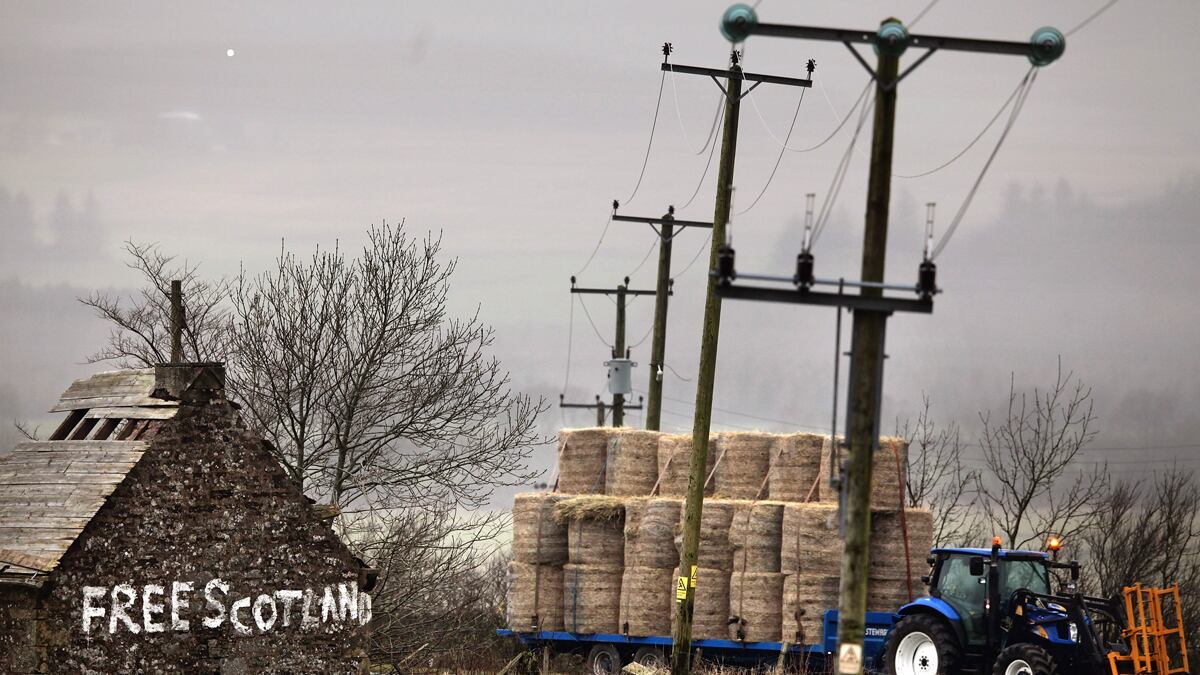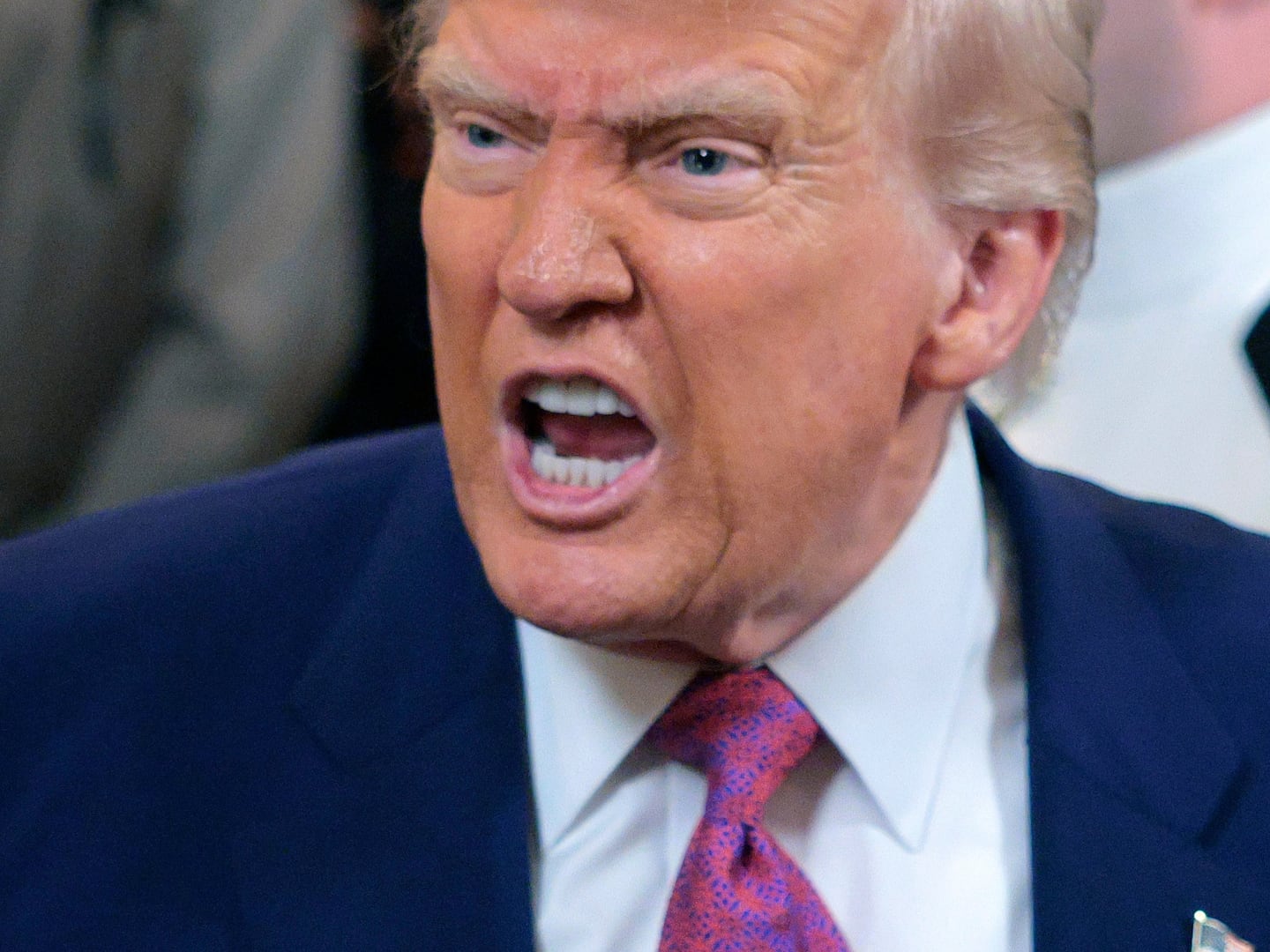“Stands Scotland where it did?” asks Macduff. The answer, now as in Shakespeare’s Macbeth, is “No, not at all.” The British and Scottish governments inched closer Tuesday to agreeing to the time and nature of a referendum on Scottish independence. For the first time since Bonnie Prince Charlie led an army of Highland Scots into England in 1745, the survival of the United Kingdom is in doubt.
Alex Salmond, leader of the Scottish National Party (SNP) and first minister of Scotland, announced his plan to hold a referendum on independence in the autumn of 2014. Simultaneously, the British government in London declared it was happy to provide the legal backing that would allow the Scottish government, hitherto constrained by the limited powers granted to it in 1998 when the Scottish Parliament was established in Edinburgh, to hold a referendum without the plebiscite being open to legal challenge.
So now we know: the marriage between Scotland and England, first consecrated by the Act of Union in 1707, may end in divorce in 2014. If so, it will mark the end of one of the most successful multinational constitutional experiments in world history. There is a new Battle for Britain and winning it will be one of the greatest challenges of David Cameron's premiership. The stakes could scarcely be higher. Are Scots really prepared to make foreigners of their English neighbors? How did it come to this?
As recently as 40 years ago the very idea of Scottish independence was considered risible. Before the discovery of oil in the North Sea off the coast of Scotland, the SNP was generally thought the natural home for cranks and hopelessly deluded romantic dreamers. However much the idea of “independence” might stir the blood, the cold reality of economic prosperity has concentrated Scottish minds. Supporting independence was the kind of youthful silliness sensible people cast aside as they develop an adult awareness of the facts of life.

But that reckoning was before the impact of Margaret Thatcher's administration. The Iron Lady came to power in 1979, just months after a referendum to establish a Scottish assembly failed to win sufficient support. The Tories had opposed that plan but promised to introduce a “better” bill. Thatcher ignored this promise and by the time she was removed from office in 1990 it is doubtful any politician in Europe was as unpopular anywhere as Thatcher was in Scotland.
The decline of Scotland’s heavy industry might have been hard to avoid in the happiest of circumstances, but the manner of its dismantling and the difficulty of replacing jobs lost in shipbuilding, steel, and coal mining left a scar on the Scottish political psyche that has still not wholly healed.
The anti-Tory backlash was severe, and in 1997 the Tories were destroyed, losing all their seats in Scotland. Even now, despite David Cameron's efforts to “detoxify” the Tory brand, the party only holds one Scottish seat. As has been remarked endlessly this week, thanks to the Edinburgh Zoo's deal with the Chinese government, there are more giant pandas in Scotland (two) than Conservative M.P.s (one).
The Labour Party, which had been split on home rule in the 1970s, persuaded itself that only a Scottish Parliament could protect Scotland from the ravages of Conservative governments unable to command even respectable levels of support, let alone majorities, in Scotland. Civic Scotland—the churches, labor movement, and so on—agreed. As a bonus, devolutionists argued that a Parliament in Edinburgh would also be a bulwark against the kind of separatism favored by the SNP. It would, as one leading Labour figure put it, kill the SNP “stone dead.”
That proved a mistaken assumption, to put it mildly. The new Parliament created a forum in which the SNP, and Scottish claims to self-determination, could thrive. The SNP was both the cause and beneficiary of a rising tide of Scottish national sentiment, the like of which had not been seen since Victorian times, when the heroes of the 14th-century Wars of Independence, Robert the Bruce and William Wallace, became figures of renewed national pride.
Back then, however, the British Empire (in which Scots played a disproportionate role) provided much of the glue which bound Scotland and England together. So, too, did the shared sacrifices of the two world wars later on. But by the end of the 20th century, the empire was long gone and the memory of wartime endeavors, though still honored, was fading.
The SNP, a rare center-left nationalist party, were the beneficiaries of this revitalized Scottish consciousness. By 2007, 62 percent of Scots told pollsters they were Scots first, Britons second.
Voting for the SNP swiftly became the means by which many Scots expressed the political side of this cultural shift. Before the 2007 Scottish election, 55 percent of voters said they trusted Alex Salmond to “stand up for Scotland”; just 24 percent believed that the same could be said of Salmond’s Labour opponent, Jack McConnell. Salmond won a narrow plurality of the seats in that election but, because he could only run a minority ministry, never had the votes in Parliament to hold a referendum on independence.
That changed—and with it, the course of British history—in May last year. Despite a complicated electoral system designed to make it all but impossible for one party to win a majority, Salmond’s party, assisted by the unpopularity of Cameron’s government at Westminster, won a thumping, astonishing victory. The SNP won 45 percent of the vote (quite an achievement in a five-party system) and 69 of the 129 seats in the Scottish Parliament. This “overwhelming mandate” made a referendum all but inevitable. The unionist parties opposed to independence were routed; three of Salmond’s opponents resigned; and the first minister, undisputed Cock of the North, was named “Briton of the Year” by the London Times and “Politician of the Year” by the Spectator magazine.
Yet even the spoils of victory come at a cost. For all his popularity—he presently enjoys a 45 percent approval rating—Salmond knows that full-fledged, United Nations-member independence remains a minority enthusiasm. Polls suggest approximately 35 percent of Scots support that kind of independence, while roughly 55 percent are opposed.
Salmond, therefore, was careful not to promise an immediate plebiscite. He would, he said, call his referendum in the second half of the parliament. He is playing a long game, trusting that the distrust with which Scots view Cameron's government in London will help shift the balance of opinion in the SNP's favor. For his part, Cameron has no desire to be the answer to a trivia question 100 years from now: “Which prime minister presided over the breakup of the United Kingdom?”
Nevertheless, though few observers will ever again underestimate Salmond, the complexities of unravelling a country that has existed for more than 300 years (and shared a head of state since 1603, when James VI of Scotland acceded to the English throne) are enough to boggle even the most optimistic nationalist mind. This is not like breaking up Czechoslovakia.
What currency would an independent Scotland use? How would the United Kingdom's assets (and debts) be divided? What would become of pensions and other financial arrangements? Could an independent Scotland survive without transfers from the richer parts of England? Would an independent Scotland automatically be a member of the European Union? These and many other questions besides have previously been interesting matters for political and number-crunching speculation. Now they are live issues.
Salmond claims that, in part thanks to buoyant oil revenues, an independent Scotland would have run smaller deficits than the United Kingdom as a whole has in recent years. Nevertheless, the financial aspect of independence, especially given the economic uncertainty prevailing across Europe inevitably make independence a matter of some risk.
Which is one reason why Salmond might like to hedge his bets and ask a two-question referendum. Scots would be asked if they favor full-fledged independence and then, in a second question to be considered if independence is rejected, to consider whether they wish the transfer of significantly greater economic powers from London to Edinburgh.
At present, the Scottish Parliament has power to legislate on education, health, and most other government services, but it has few fiscal powers. Every state in the American union enjoys greater fiscal autonomy than Scotland; Salmond would, at the very least, like to see Scotland able to raise its own revenues, leaving only foreign affairs and defence as the responsibility of the British government in London.
His unionist opponents, however, are determined to force a simple, one-question referendum on Salmond: yes or no to independence? Above all, unionists wish to avoid emulating Canada's experience with the traumas of repeated referendums on independence for Quebec. The Scottish vote, they insist, must settle the matter for at least a generation. The risk for Cameron is that insisting upon such conditions risks a Scottish backlash against perceived English interference. Given the toxicity of the Conservative “brand” in Scotland, that could prove fatal for unionism.
Whatever the outcome, the battle between David Cameron and Alex Salmond, by some distance the two biggest stars in the British political firmament, will be a struggle for the ages.






